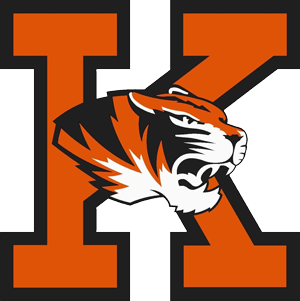Curriculum
Early Childhood Learning Center Curriculum
ECLC Curriculum/ Missouri Early Learning Standards (MELS)ECLC Curriculum/ Missouri Early Learning Standards
The goal of the curriculum is to aid in the social, emotional, cognitive, adaptive, creative and physical development of each child. The ECLC provides a flexible program that gives all children the capacity to engage cooperatively and productively within a learning community environment. Our staff use developmentally appropriate guidelines to plan for each day. All ECLC programs are designed to meet the Missouri Early Learning Standards (MELS) and prepare students for school readiness.
Staff in the preschool programs are trained in Project Construct, which is a comprehensive curriculum that guides teachers in successfully planning and implementing a content-rich, developmentally appropriate program that supports active learning and promotes children's progress in all developmental areas. Teachers facilitate and develop social/emotional skills with preschool students while also teaching foundational skills in the areas of: literacy, math, science, social studies, physical development, creative arts and technology.
Preschool Objectives Based on the Missouri Early Learning Standards:
Approaches to Learning
Shows curiosity
Takes initiative
Exhibits creativity
Shows confidence
Displays persistence
Uses problem-solving skills
Shows interest in visual art
Shows interest in dramatic arts
Social Emotional Development
Exhibits self awareness
Develops self control
Develops personal responsibility
Builds relationships of mutual trust and respect for others
Works cooperatively with children and adults
Shows curiosity
Takes initiative
Exhibits creativity
Shows confidence
Displays persistence
Uses problem solving skills
Language and Literacy
Represents feelings and ideas in a variety of ways
Uses language to communicate ideas, feelings and questions or to solve problems
Listens for different purposes
Uses writing as a means of communication
Applies early reading skills
Attends to sounds in language
Science
Explores physical properties of objects and materials, characteristics of living things and properties of earth and space
Investigates properties of objects and materials, characteristics of living things, and properties of earth and space
Represents observations about the physical world, living things, earth and space
Solves problems related to observations of the physical world, characteristics of living things, earth and space
Mathematics
Uses numbers to show quantity
Uses language to represent number of objects
Solves problems using numbers
Uses numerical representation
Investigates positions and locations
Explores shapes in the environment
Makes comparisons
Uses measurement
Collects, organizes and uses information
Physical Development
Uses gross motor skills with purpose and coordination
Uses fine motor skills with purpose and control
Responds to sensory input to function in the environment
Practices healthy behaviors
Practices safe behaviors
Expressive Arts
Shows interest in music and movement
shows interest in visual art
shows interest in dramatic arts
Family Relationships
Ensuring positive interactions between staff and families
Maintaining open and consistent communication
Participating with all family members
Becoming partners in the educational process
Becoming involved in the ongoing life of the school
Effective Teaching Practices
On-going professional development for teachers
Collaborating with the early childhood community at large
All classrooms document individual children’s learning through portfolio assessment
Family surveys are used to reflect on practices and identify strengths and weaknesses
